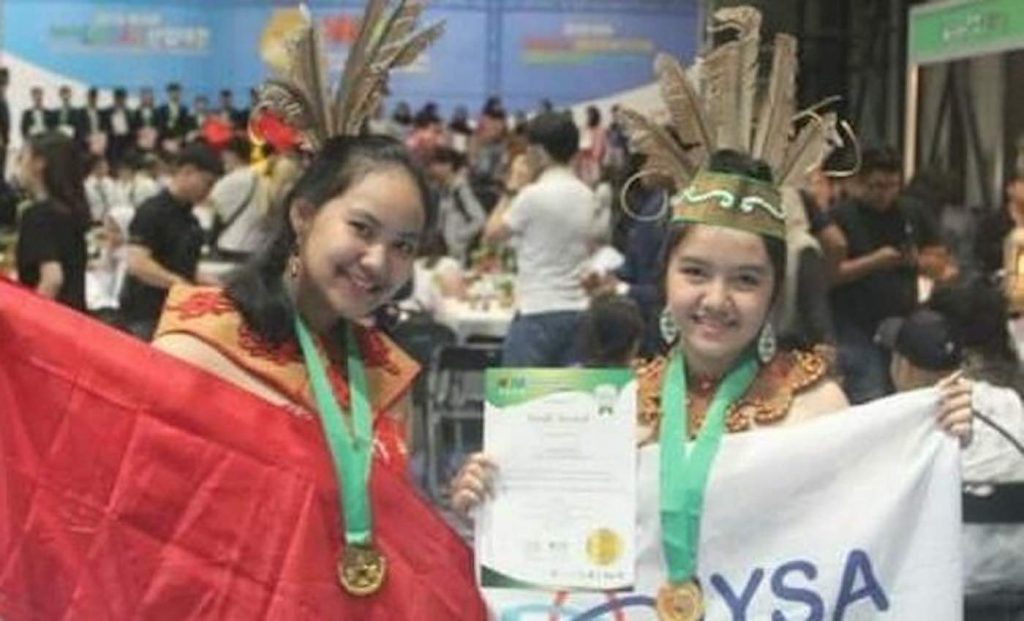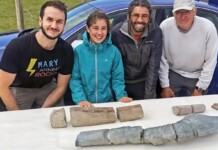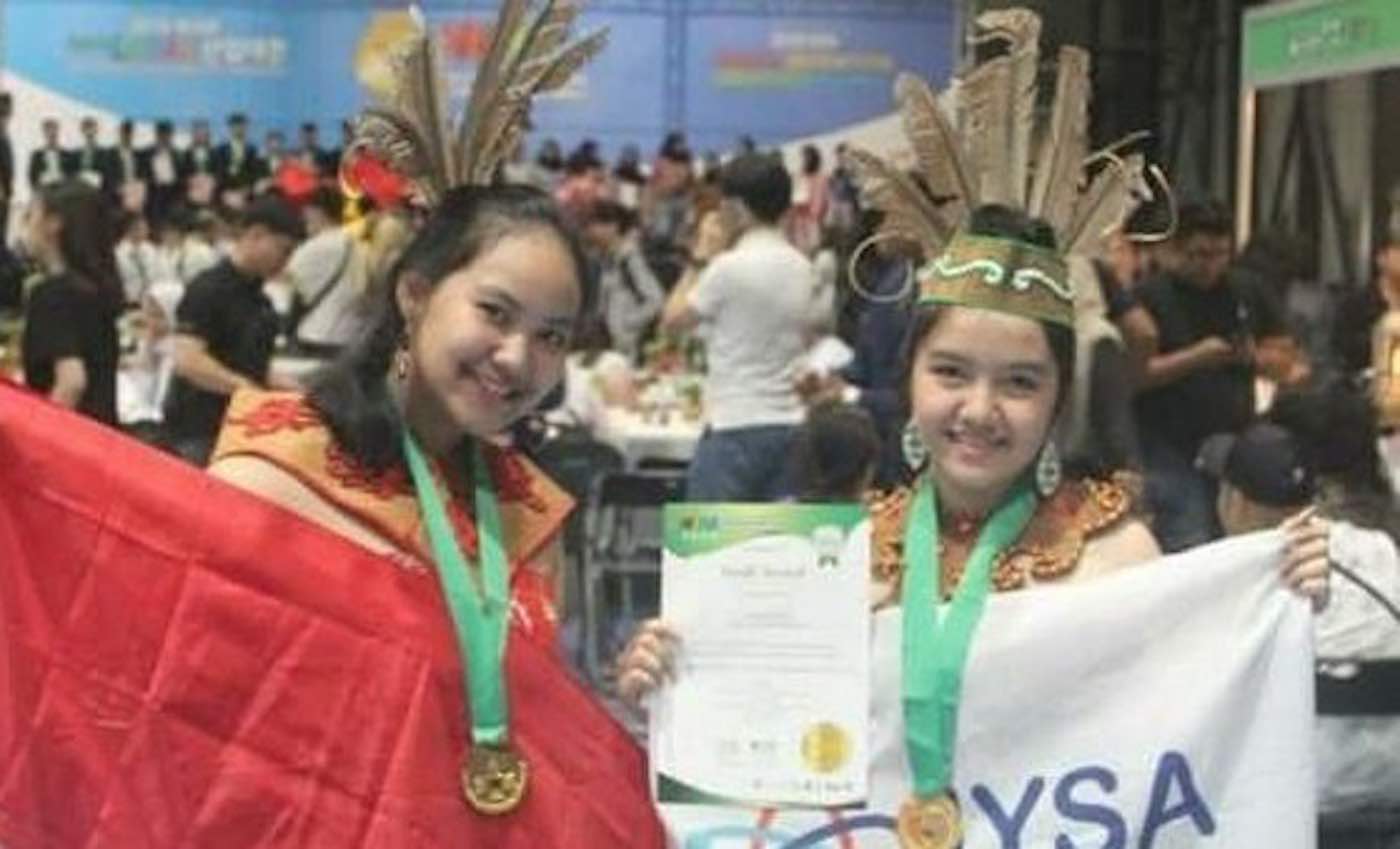Two Indonesian high-school students used local lore of a plant’s medicinal properties in their own bid to develop a cure for cancer.
The girls, who attend Palangka Raya State High School in Central Kalimantan, presented their inspiring evidence last month at the World Invention Creativity (WICO) event in Seoul, South Korea.
Anggina Rafitri and Aysa Aurealya Maharani decided to test the claims of local traditional medicine by developing a treatment extracted from the native Bajakah tree. Two weeks after performing a study on a rat with cancerous tumors, the animal was cancer-free.
The results showed that the Bajakah tree may indeed contain some kind of potent healing potential. The pair won the gold medal at the event, sparking new hope worldwide for a swift-acting cure for the disease.
RELATED: Apples, Tea, and Moderation—The 3 Ingredients for a Long Life
Central Kalimantan Governor Sugianto Sabran hosted the two girls at the Isen Mulang Palace last week, where he told them how impressed he was, and that he was ordering the relevant agencies to help them patent their intellectual property rights to the research.
“What they found was extraordinary. Not only is it needed by the Central Kalimantan people, but Indonesia and even the world,” said the governor as reported in a translated JawaPos article.
Although the results using the rat were authentic, Prof. Dr. Aru Sudoyo, the Chairperson of the Indonesian Cancer Foundation, has reminded the public that clinical trials using human patients is a very long and unpredictable process using evidence-based medicine.
Still, the governor of Central Kalimantan has given the teenagers IDR30 million ($2,109) in grants for further research. As a next step, the students will use intermediaries to continue their efforts going forward and to get help raising additional funding, according to Prof. Dr. Budi Wiweko, the Deputy Director of the Indonesian Medical Education Research Institution (IMERI) and Faculty of Medicine at University of Indonesia.
“After such excitement, many people ask, then what will happen to the discovery of intelligent children?” Dr. Wiweko told Kompas.

He admitted that it would be difficult for the students to continue alone in further clinical trials after the pre-clinical phase, so the university will offer mentorship through its Indonesian Technology Innovation for Health, and provide guidance through the Technology Transfer Office (TTO).
Dr. Wiweko’s medical institute hosts an open innovation event each year so that participants can be trained and given an understanding of how to develop their respective research.
Without usurping the accomplishments of Anggina and Aysa, the Indonesian offices will help them get at the root of what the Bajakah tree has to offer.
Plant Some Positivity Amongst Your Friends By Sharing The Good News To Social Media…




















